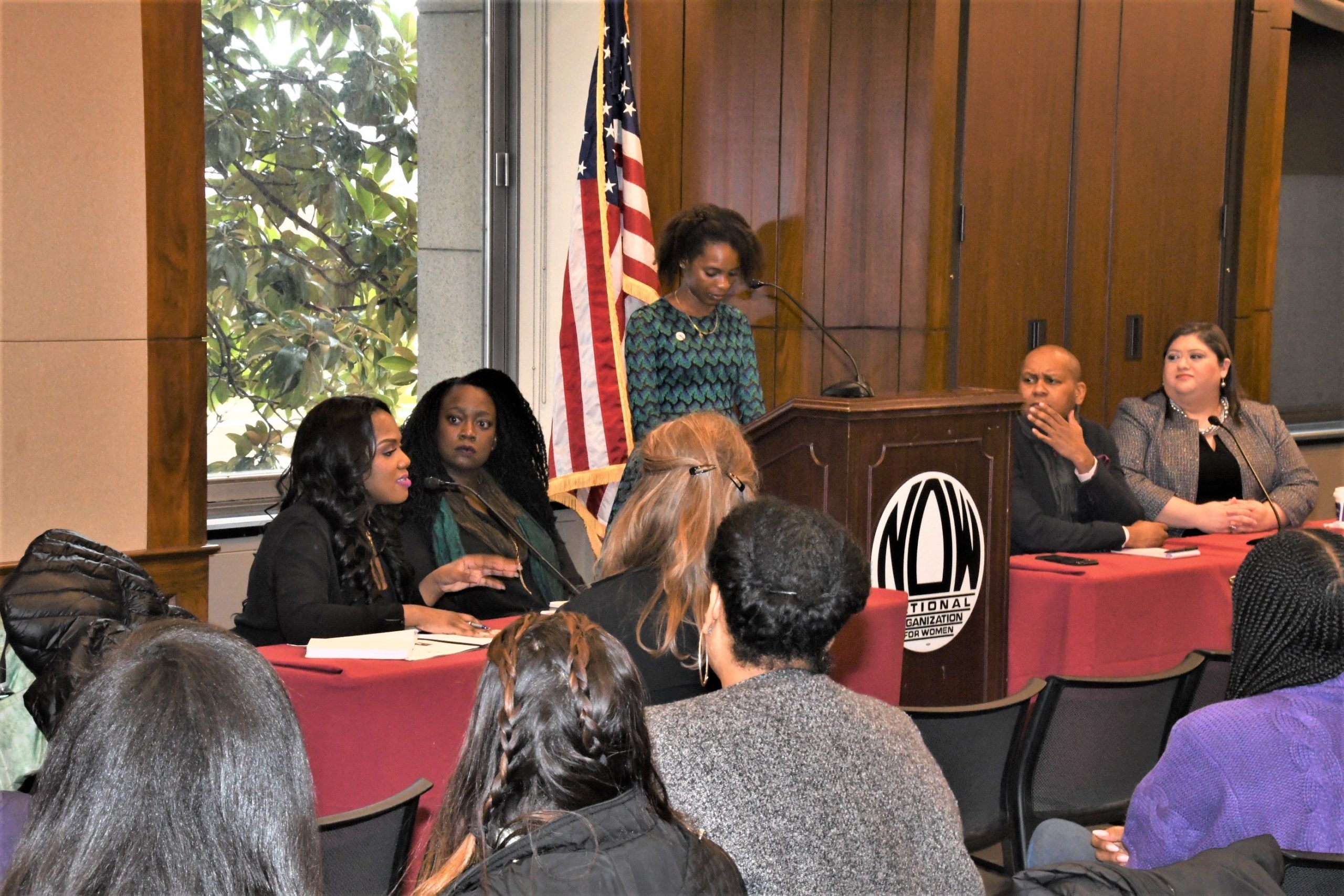
On Feb. 12, 2020, NOW hosted our Racial Justice Summit and Congressional Briefing, bringing together members of Congress, scholars, authors, and activists. The day-long event facilitated some of the most thought-provoking and intersectional conversations I have heard within the nonprofit world. The most important part of the event, however, was the way it foregrounded the lived experiences of the speakers and panelists.
While all the panels were fascinating, the one that resonated with me the most was “Eradicating Poverty through Economic Justice.” Each panel highlighted a range of issues that impact women, but this one particularly embodied the idea that “women’s issues” are not separate from the other systems of oppression in our society. This panel was made up of Ashley Allison, Executive Vice President at the Leadership Conference on Civil and Human Rights; author and activist Kevin Powell; Amy Hinojosa, National President and CEO of MANA: A National Latina Organization; and was moderated by clinical psychologist Dr. Anica Camela Muzlac.
Even within the subsect of economic issues, there are so many pieces that fit together to make up the puzzle. “Economic injustice” is a huge phrase, but it’s made up of a variety of beliefs and policies that come together to prevent communities of color from receiving the same opportunities as higher-income groups. For example, Allison lifted up the fact that human rights and equal opportunity are inextricably linked to wages and labor. Later in the panel, Hinojosa noted that there are disparities in student loan debt, pointing to yet another structure that prevents women of color from exiting the cycle of poverty. Each person brought unique experiences and insight to the panel, creating well-rounded and informed dialogues around key issues of racial justice and equity.
The Summit also took a vitally needed look at disability rights. Ola Ojewumi, a member of the PPADMV DC Advocates Council, was meant to be on the first panel of the day. However, she had struggled to get rideshare that could accommodate her wheelchair, despite beginning her journey to the Summit at 4am that day. Once she got to the event, she pointed to her experience as an example of larger, structural inequalities that oppress people of color with disabilities on a daily basis. For me, this moment really embodied what activism is – giving voice to everyday experiences that exemplify the systemic disempowerment of groups of people.
I also felt inspired listening to the many influential Congressional members who spoke at the summit. As a queer woman of color, I often feel like the marginalized communities that I’m a part of don’t have enough of a voice in the government. Hearing these senators and representatives share their experiences with racial inequity reminded me that we have allies in Congress advocating for those who often are silenced. Even better was knowing that these officials are invested in these intersectional conversations – especially Representative Sharice Davids, who has been an important role model for me as the first openly LGBTQIA+ Native American woman in Congress.
The Racial Justice Summit really demonstrated the need for intersectional policy and policy-makers who are aware of the scope of these issues. We often see legislation that addresses problems in a vacuum without understanding the larger structures at hand. As someone who grew up in Maryland, I often think of Baltimore, which has long been neglected by the state government. It is not enough to just increase funding for welfare programs in the city – legislators need to think about how poverty is linked to education, affordable housing, police brutality and violence, and a plethora of other systems that work to disempower people of color.
As an intern, our Racial Justice Summit demonstrated to me that NOW isn’t afraid to lead these conversations. Even internally, our staff and board are participating in Racial Equity training which will also be available to attendees at our joint conference with Feminist Majority on June 5-7 in Washington, D.C. The conversations initiated at the Summit will continue throughout all our works and training. The range of panelists and speakers, all with varied experiences, perspectives, and ideas, made the event one of the most productive I’ve ever attended.
See photos from the Racial Justice Summit here and the Facebook livestream here.
Blog by Liyanga de Silva, Communications Department intern at NOW.